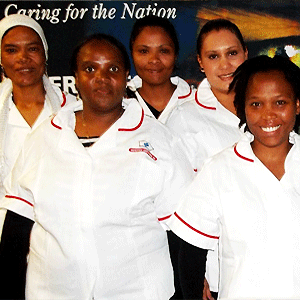
A law intended to speed up development of new drugs for US kids has ended up financing clinical trials in poor countries, where the medicines might never become available.
That's the conclusion of a new report whose authors say the situation raises ethical concerns.
More than a third of the published trials performed under 1997 legislation called the Paediatric Exclusivity Provision were carried out at least partly in developing or transitioning nations, such as Uganda and India, researchers found.
"The trend that we describe brings up some scientific and ethical problems," said Dr Sara K. Pasquali, a paediatrician at Duke University Medical Centre in Durham, US, whose findings appear in the journal Paediatrics.
Study may be only medical care
"Oftentimes, access to a study may be the only access to medical care a family has," she said of trial participants in developing countries. Once the testing is done, however, it's unclear if effective drugs will be marketed in the country in question, and whether they will be affordable.
Among the 174 trials the researchers examined, drugs against infectious diseases were most likely to be tested in the developing world, closely followed by heart, allergy and arthritis medications.
"We are now using vulnerable people in vulnerable countries as drug laboratories," Dr Marcia Angell, who was not involved in the new research, told Reuters Health. "It is all about dollars and cents."
Trials shouldn't be done in undeveloped countries
"Whether in children or adults, no clinical trials should be done in undeveloped countries unless they are trials to test a drug for a disease that only occurs there," said Angell, who teaches social medicine at Harvard Medical School in Boston, US.
The idea behind the Paediatric Exclusivity Provision is to incentivise development of drugs for children in the US.
Because many diseases are rare in childhood, clinical trials usually target adults only, and their results don't automatically extend to kids. The paediatric provision grants companies an extra six months of patent life if they test their drugs in kids as well.
So far, those patent extensions have netted drugmakers an estimated $14 billion dollars, according to the US Food and Drug Administration.
Advantages and disadvantages
At the same time, more than 150 drugs have been approved for children since 1997, said Pasquali.
"There are certainly both advantages and disadvantages to consider," she said of the rapid globalisation of clinical research, adding that it makes recruiting participants easier and carrying out drug trials cheaper.
According to the Pharmaceutical Research and Manufacturers of America, a trade association, there is no difference in the way trials are conducted in the US and abroad.
"All of our companies follow our principles on conducting clinical trials," said Mark Grayson, a spokesman for the association. "No matter where we are we follow our principles."
Those principles include getting informed consent from the research participants (or in the case of children, their parents), ethical approval by an independent board, and training local investigators.
Cultural context
But the meaning of something like "informed consent" might not be clear in a different cultural context. One study from 2008, for instance, tested how much women in Ghana understood about the clinical trial they were part of.
The women were taking either vitamin A or a dummy pill, yet more than 90% actually believed they were getting an active and beneficial medication.
M. Nabeel Ghayur, a pharmacologist who worked in drug development in Pakistan before joining McMaster University in Hamilton, Ontario, Canada, said conditions are similar in India and Pakistan.
"People actually have blind trust in their doctor in South Asia. They have no idea what drug development is, they have no idea what clinical trials are," he told Reuters Health.
Little red tape
He said there was little red tape in those countries, and that people would rarely ask about drug side effects and legal issues.
"Recruiting people is easy, getting informed consent is easy, getting approval is easy, paying the patients and paying the doctors is easy," Ghayur said. "The physicians and investigators have absolutely no idea about the seriousness of the situation."
Pasquali said drugmakers needed to be held to a higher standard. For instance, she said, they could be required to describe how appropriate a drug would be for the country in which it is to be tested.
In addition, transparency could be increased by publishing all trials in medical journals - something that happened less than half the time for the trials done under the Paediatric Exclusivity Provision.
"Children are a vulnerable population," Pasquali said.
SOURCE: Pediatrics, online August 23, 2010.




 Publications
Publications
 Partners
Partners










